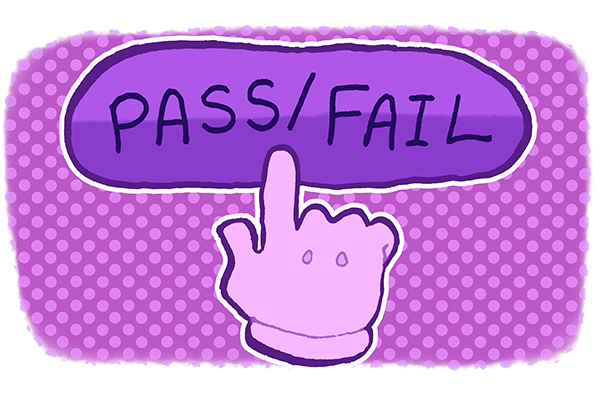UT Student Government, the Senate of College Councils and the Graduate Student Assembly have asked the University and Faculty Council to reestablish grading policies from the spring semester because of the pandemic’s continued effects.
The organizations released a joint resolution Monday morning, which asks to grant students the option to pass/fail courses after final grades are released while still counting them towards degree requirements. It also asks the University to allow students to Q-drop classes until one week after grades are posted without deducting from the six-drop limit.
“With the COVID-19 pandemic only getting worse with an ongoing third surge of cases, students are obligated to focus extra time on a variety of issues,” the petition said. “This additional stress on the students may negatively affect their academic performance in various classes, especially with over 60% of classes being held entirely online.”
As of Monday evening, more than 7,300 people had signed in support of the legislation, which refers to similar grading policies enacted at colleges such as the University of Southern California and the University of California-Berkeley.
Kathleen Harrison, communications manager for the Office of the Executive Vice President and Provost, said in an email that UT has no plans to change the grading policies, and such changes would have to be passed through the Faculty Council.
“Although students may not have known their class modality during fall class registration back in April and May, they started the semester knowing whether their classes were online, hybrid or in person,” Harrison said. “Students had opportunities to prepare and access additional assistance and services being provided across campus to ensure their academic success.”
Debbie Roberts, Faculty Council executive assistant, said Faculty Council officers will not comment on the resolution until it can be discussed at the next Faculty Council Executive Committee meeting Nov. 20.
The SG assembly will introduce and vote on the legislation Tuesday and the Senate will do the same Thursday evening, policy authors Leland Murphy and Caroline Seyer said.
Murphy, Senate academic policy co-chair and SG academic affairs chair. said the policies should have already been in place since stressors such as rising COVID-19 cases and an economic downtown continue to affect student livelihood.
“Since we’ve now experienced this semester, we can tell — this is just as bad as spring or even worse,” government sophomore Murphy said.
Seyer said navigating Zoom and hybrid classes is exhausting, and all of the problems present during the spring semester have not subsided this fall.
“A lot of my professors have taken this as an opportunity to kind of coast by and not really try to make … an online environment accommodating for all students and accommodating for learning,” said Seyer, SG representative for the College of Natural Sciences. “I don’t think the University has had a very sufficient response.”
Sydney Lara, a biology sophomore and petition signee, said the learning environment this semester has remained as stressful as last semester.
“We’re all struggling,” Lara said. “We’re all trying to get used to this online learning experience.”
Lara said office hours and connecting with professors is more difficult over Zoom. She said she hoped to take classes in-person this semester, but all of her classes were ultimately online.
“(The policy) would be useful this semester, especially if there’s that one class you’re struggling with,” Lara said. “You’re not doing as good as you think you would have done if it was an in-person class.”





















